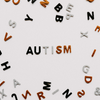Battling Stress While Caring For A Child With Autism

Over 3.5 million Americans live with an autism spectrum disorder, according to the Autism Society, and parents are often their primary carers. Teachers, specialists, and friends and family members may encounter stress while caring for a loved one. As noted by Autism Help, signs of carer stress include having headaches, difficulty sleeping, and feeling emotional or anxious. Stress is not in itself negative, but when it is present at high levels for too long, it can pose a threat, increasing the likelihood of everything from heart disease to diabetes and obesity. If you find that you are often fatigued or anxious, meeting stress head-on is key. Battling stress successfully does not merely involve relaxation, but also tackling problems proactively. Top technology such as that contained in TouchPoints, meanwhile, will stop your body from going into the fight/flight/flee mode, so as to avoid anxiety and panic attacks.
Vital TouchPoints
If you work as a carer or you are a parent of a child on the autistic spectrum, consider technological help, as is afforded by TouchPoints. This system uses Bi-Lateral Alternating Stimulation Tactile (BLAST) technology to sends specific vibrations to alter the body’s fight/flight/flee response. All you need to do is wear two devices that can attach to wristbands or be clipped onto clothing. Without even having to make an effort, you will feel less stressed in as little as 30 seconds.
Determining The Cause Of Stress
Stress is a cumulative ‘monster’ that needs to be broken down if it is to be addressed effectively. List down all your day to day activities that involve caring for a child on the autistic spectrum, and rate the stress they produce from one to 10. For some, traveling to work is extremely stressful, especially if they live in a high traffic area or need to drive for long distances. For others, the main problem is feeling like they do not have time to themselves (e.g. to work out, work, or further their education). It is important to create a personal strategy for the top sources of stress, leaning on others for the most difficult tasks and learning to delegate.
Embracing Social Support
When it comes to carer adaptation, studies have shown that informal social support (relying on friends, family, a spouse, etc) is more effective than structured formal support (e.g. attending a support parenting or carer group). A study by B Boyd found that carers who received support related better to children in an emotional sense. Moreover, low levels of support were strong predictors of depression and anxiety in carers of a child on the autistic spectrum.
Pet Therapy Works
A 2015 study by H.F. Wright found that acquiring a pet dog significantly decreases stress for carers of children with autism. The researchers noted that many people are reticent to get a dog because they think it will add to the stress. After all, dogs require a couple of long walks a day, veterinary care, etc. Interestingly, there is overwhelming evidence to support the utility of dogs in reducing stress. One study by Grandgeorge et al found that parents noted improvements in pro-social behaviors in children with autism when a dog was brought home. However, the benefits of having a pet go beyond those they bestow on children. That is, interacting with a dog has a calming effect that carers and parents can avail of.
Workshops In Stress Management
Workshops focusing on stress management strategies for carers of children with autism have also been found to be effective. The key is to learn efficient problem-solving strategies for specific issues one may encounter during the caring process. Both parents and non-familial carers can benefit from receiving more information about children’s behaviors and from understanding how kids on the autistic spectrum process sensory information. Information is power because it tells you what to expect, thus lowering the levels of anticipatory anxiety.
Yoga For Carers
Across the globe, there are organizations supporting carers and families of loved ones through proven stress-busting activities like yoga and mindfulness meditation. Yoga for Carers, for instance, is a specific program aiming to help carers feel more relaxed and focused. Those who do yoga and work in nursing, caring, and other vocational jobs, often state that by embracing mindfulness and calm, they feel more motivated to care for others, and indeed, they become even better carers.
If you care for a child on the autistic spectrum, keeping stress at bay is key. The first step is to analyze sources of stress, creating a strategy to deal with the most pressing matters. Finally, support from friends and family, yoga and meditation, and technological aids such as TouchPoints™ can work together seamlessly to enable you to be the very best carer for a child.




